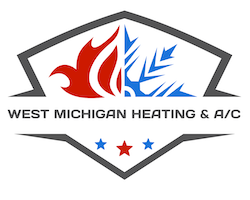Buying your first home is an exhilarating experience. You’re probably juggling a dozen things or more to ensure you’re making the right choice. We believe that gaining insight into your future HVAC system is crucial. The property’s HVAC system represents a substantial investment and source of potential long-term costs, which is why due diligence is important for first-time homebuyers.
In the following guide, we’ll outline seven tips for learning everything you can about a home’s heating and cooling system. And if you want a deeper opinion from the pros, feel free to call West Michigan Heating & Air Conditioning Services. Our seasoned technicians can help you compare your options with industry insights you won’t find elsewhere.
1. Which Kind of HVAC System Does the Home Use?
Start by identifying what kind of HVAC system the home features. Furnaces tend to last longer than air conditioners, and newer types of HVAC equipment like heat pumps feature average life spans longer than ever. Knowing the make and specific model provides a much better sense of how much routine maintenance it might need.
2. How Old Is the Current HVAC System?
It’s just as smart to learn how old the HVAC system is when you’re considering a potential new home. In general, HVAC systems last about 10-12 years. Having the knowledge of when it was installed helps you prepare for any needed servicing or when it might shut down for good. Older systems are at a higher risk of problems, so fiscal planning for a replacement unit could be necessary sooner than you thought.
3. Is the Warranty Active?
Don’t forget to look into whether the HVAC system is still under warranty. If it is, this can help with maintenance expenses. HVAC warranties often cover parts and labor, but the details in each policy will vary. Don’t forget to look into any terms you don’t recognize to make sure you fully understand your coverage and the likelihood of out-of-pocket costs.
4. Has the System Ever Been Professionally Serviced or Maintained?
Take a close look at the maintenance history of the HVAC system, if the records are available. This kind of information can reveal if there have been regular problems or how much upkeep was provided. Ask about records for key tasks like filter changes, which is a positive sign indicating regularly scheduled tune-ups.
5. Are You Aware of the System’s Energy Efficiency Ratings?
Selecting a system with high energy efficiency isn’t just smart; it leads to lower utility bills and a smaller environmental impact. Try and find the seasonal energy efficiency ratio (SEER) ratings for air conditioning as well as the annual fuel utilization efficiency (AFUE) for furnaces. The higher the SEER rating, the more efficient the cooling over the whole season, while high AFUE ratings illustrate that the fuel is efficiently converted into useable heat.
6. Have You Noticed Signs of Problems After Your Own Inspection?
Even if you don’t have heating and cooling expertise, it’s still a good idea to inspect the HVAC system yourself. Watch closely for potential issues that might have been overlooked. This might consist of odd sounds, unequal airflow and attempts at concealing any obvious damage.
7. Have You Sought Out Expert Advice?
If you’re not quite sure about the overall state of the HVAC system, it’s never a bad idea to get input from certified HVAC technicians. They will be much more likely to catch things you may not know about, including refrigerant leaks, wiring issues or damaged ductwork.
A Chat with West Michigan Heating & Air Conditioning Services Simplifies Your Home-Buying Journey
Choosing your first home is meant to be a joyful event, and West Michigan Heating & Air Conditioning Services wants to ensure yours is too. Reach out with us at 616-971-6428. We can discuss how our HVAC services help make this process smoother, giving you what you need to make an offer with confidence.


